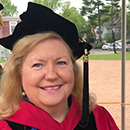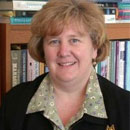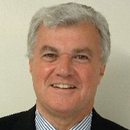Teaching English Learners with Disabilities Certificate
NOTE: Students can elect to earn 120 PDPS or 6 credits for the entire certificate.
The concentration in ELL/SPED provides post-baccalaureate students with the knowledge and skills to work with bilingual English learners who may have special education needs and services across all educational settings. The program is 100% online and provides an opportunity for a national audience of educators, psychologists, and administrators to enrich their skills in working with the population. Also, the certificate also addresses the Professional Standards for Teachers required by the state of Massachusetts to maintain their licensure requirements for serving ELLs with or without special education needs and students with disabilities who are not English learners.
ELSP701: Fundamentals of Bilingual Special Education: Policies, Laws, and Practice
ELSP702: Removing Barriers for Classroom Assessment and Instruction of Bilingual Students
ELSP703: Assessment for Equity and Inclusion of Bilingual Students with and without Disabilities
ELSP704: Culturally Responsive Individualized Educational Planning for Bilingual Students with Disabilities
| Course Code | Course Title | Credits |
|---|---|---|
| Core Courses | ||
| ELSP701 | Fundamental of Bilingual Special Education: Policies, Laws, and Practice | |
| ELSP702 | Removing Barriers for Classroom Assessments and Instruction of Bilingual Students | |
| ELSP703 | Assessment for Equity and Inclusion of Bilingual Students with and without (Dis)Abilities | |
| ELSP704 | Culturally Responsive Individualized Educational Planning for Bilingual Students with Disabilitie | |
ELSP701 - Fundamental of Bilingual Special Education: Policies, Laws, and Practice
This project-based course facilitates understanding of the integrated historical, theoretical and legal foundations of bilingual and multicultural special education. The focus is to address free and appropriate education for racially, culturally and linguistically diverse children with and without disabilities in the least restrictive environment. Participants will examine components of their system, the alignment to legal mandates, ethical practice and recommendations for addressing equity.
ELSP702 - Removing Barriers for Classroom Assessments and Instruction of Bilingual Students
The project-based course will address how to establish prevention practices in the general education classroom that the teacher, ESL teacher, and special educator can address to support preventively bilingual English language learners. Participants will use an ecological assessment perspective of the context of the education environment, culturally responsive practices, and the connection and application of instructional strategies. Data-informed instructional practices and efficient classroom assessment including a focus on screening and progress monitoring will be addressed.
ELSP703 - Assessment for Equity and Inclusion of Bilingual Students with and without (Dis)Abilities
This course includes the assessment of bilingual English learners in the areas of language, culture, and social- emotional development. A process for distinguishing between second language indicators and learning disabilities is studied and selected assessments tools are examined and used. Non-discriminatory report writing will be addressed.
ELSP704 - Culturally Responsive Individualized Educational Planning for Bilingual Students with Disabilitie
This course will address how to implement high leverage, instructional strategies that can be used across all content areas with a focus on reading comprehention, oracy, and vocabulary. Within the context of a multi-tiered system of support (MTSS) framework, the instruction and intervention design that capitalizes on coherence across the general education, ESL, and special education environments. A critical focus on interventions that highlight the use of active learning, such as Universal Design for Learning (UDL) principles, growth mindset, and tiered instruction of oral language development will be highlighted

Cristina Haverty
Associate Vice President of Workforce Development and Global Engagement/ Professor, Athletic Training
Office: Alexander STC
Email: chaverty@lasell.edu

Lori Rosenthal
Assistant Provost; Professor of Psychology
Office: Plummer
Email: lrosenthal@lasell.edu

Janice Barrett
Professor of Communication; Chair, Graduate Communication Program
Office: Donahue 108
Email: jbarrett@lasell.edu

Keith Belmore
Associate Professor of Athletic Training and Graduate Chair of Athletic Training
Office: Alexander STC 104N
Email: KBelmore@lasell.edu

Linda Bucci
Professor & Program Chair of Justice Studies, Graduate Chair of Criminal Justice
Office: Plummer
Email: lbucci@lasell.edu

Sarah Giasullo
Assistant Professor of Athletic Training; Graduate Chair of Health Sciences
Office: Alexander STC 104T
Email: SGiasullo@lasell.edu

Janet Huetteman
Graduate Chair of Management and Marketing; Associate Professor of Marketing
Office: 23 Maple Street, Office #5
Email: JHuetteman@lasell.edu

Young-Tae Kim
Associate Professor of Sport Management; Graduate Interim Chair of Sport Management
Office: Alexandar STC
Email: ykim@lasell.edu

Ron Laham
Assistant Professor of Athletic Training/ Exercise Science
Office: Alexander STC
Email: RLaham@lasell.edu

Luis Lopez-Preciado
Associate Professor of Communication
Office: Donahue
Email: LLopez-Preciado@lasell.edu

Meryl Perlson
Chair of Communication; Professor of Communication
Office: Donahue 107
Email: mperlson@lasell.edu

Matthew Reilly
Chair of Business and Interim Chair of Sport Management; Assistant Professor of Business
Office: DeArment
Email: MReilly@lasell.edu

Claudia Rinaldi
The Joan Weiler Arnow ’49 Professor/Professor of Education, Chair of Education
Office: Brennan Library
Email: CRinaldi@lasell.edu

Daniel Sargeant
Associate Professor of Sport Management
Office: Alexander STC
Email: DSargeant@lasell.edu

Nancy Waldron
Assistant Provost; Professor of Entrepreneurship and Management
Office: DeArment
Email: nwaldron@lasell.edu

Brian Wardyga
Professor of Communication; General Manager, 109.2FM WLAS & LCTV
Office: Brennan Library, G04F
Email: bwardyga@lasell.edu
- Academic Policies 20-21
- Admission to Graduate Studies
- Course Descriptions
- Graduate Financial Information 20-21
-
Programs of Study
- Bachelor Degree Completion Program
- Master of Science in Human Resources
- Master of Education
- Master of Science in Marketing
- Master of Science in Communication
- Master of Science in Criminal Justice 20-21
- Master of Science in Management 20-21
- Master of Science in Nutrition for Human Performance
- Master of Science in Athletic Training
- Master of Science in Project Management
- Master of Science in Rehabilitation Science
- Master of Science in Sport Management
-
Graduate Certificates
- Athletic Administration
- Emergency and Crisis Management
- Digital Media
- Negotiations and Conflict Resolution
- Public Speaking
- Health Communication
- Management
- Integrated Marketing Communication
- Homeland Security & Global Justice
- Marketing
- Project Management
- Public Relations
- Hospitality and Event Management
- Sport Leadership
- Sport Tourism and Hospitality Management
- Violence Prevention and Advocacy
- Teaching English Learners with Disabilities Certificate
- International Inclusive Education Certificate
- Human Resources Management
- Emergency and Crisis Management
- Master of Science in Marketing
- MBA
- Master of Science in Applied Sports Science Analytics
- Master of Science in Integrated Marketing Communication





